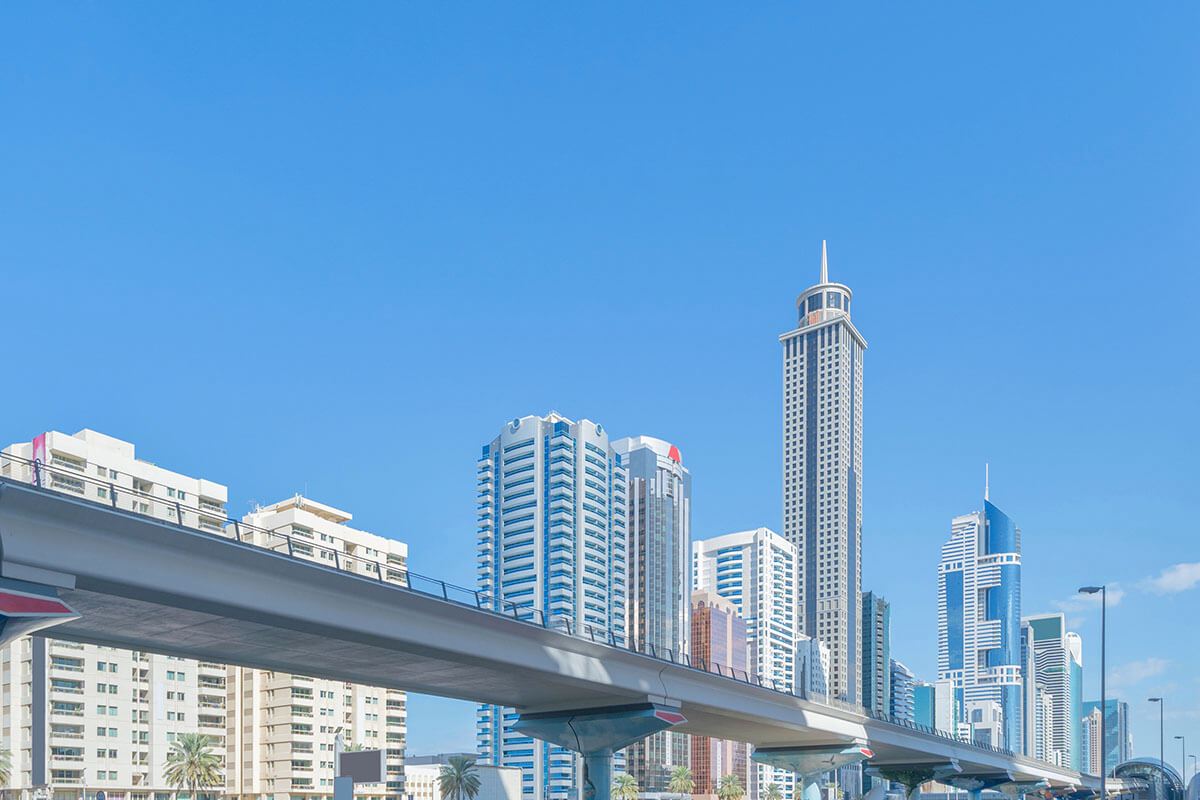
Real estate in the UAE seems attractive not only to those who plan to move to the Emirates permanently. The local housing stock is equally interesting to those who plan to invest in residential properties in order to receive passive income by renting out housing or get a one-time profit by reselling a residential unit at a higher price a year or two after purchase. Dubai remains the most popular city in the country. Real estate in Dubai is associated with high-rise skyscrapers with apartments that are only affordable to wealthy people. Besides, the lifestyle in the metropolis is permeated by many stereotypes that intimidate potential buyers. In practice, building your life in the Emirates is not so difficult, and most stereotypes are nothing more than myths. Let’s prove the misconceptions about purchasing real estate in the UAE wrong with specific examples.
Content:
- Dubai is closed to foreigners
- Dubai is an unaffordable luxury
- Only premium real estate yields a profit
- Foreigners can only buy real estate with cash
- Living in Dubai is hard
- There are no taxes in Dubai
Dubai is closed to foreigners
The reason for this stereotype is that UAE citizenship is almost impossible to obtain. However, this does not prevent residents of other countries from living and thriving in the country for many years with a residence visa. It can be obtained, among other things, by purchasing real estate. There are indeed a number of restrictions for foreigners when buying real estate: not all regions of the country allow them to own property in full ownership. But this restriction does not affect the quality of life of foreigners. In Dubai, there are several dozen so-called freehold areas, in which housing is sold to non-residents on equal terms with local residents. Among them are many popular resort destinations: Palm Jumeirah, Dubai Marina, and Downtown Dubai. A variety of options allows you to choose housing both in the city center and in a quiet suburb.

Dubai is an unaffordable luxury
Looking at premium skyscrapers, one might really think that ordinary people cannot afford apartments in Dubai. In practice, the housing stock of the metropolis is diverse and available for different budgets. Besides luxury penthouses, the city also offers affordable housing. Let’s review the average prices for 2022 in the most affordable areas based on the cost of a one-bedroom apartment.
- In Jumeirah Village Circle (JVC), the prices start at $193,000. ROI on buy-to-let properties in this area is 7.3%.
- In Jumeirah Lake Towers (JLT), the prices start at $241,248. ROI is 8%.
- In Dubai Silicon Oasis, the prices start at $126,000. ROI is 7.98%.
In popular communities such as Dubai Marina, the average cost of a one-bedroom apartment is $343,900, with a ROI of up to 7.04%. These figures clearly speak to the fact that investing in housing in Dubai is profitable for investors. It should be also borne in mind that apartments in new buildings in Dubai are handed over move-in ready. They come fully finished and fitted with sanitary ware, and a number of layouts include household appliances in the kitchen and built-in furniture. This allows you to dispose of real estate without additional investments immediately after concluding a transaction and obtaining a certificate of ownership.
Only premium real estate yields a profit
In practice, all types of housing are in demand in the metropolis. Most of the city’s population is made up of visitors who are not always ready to buy or rent luxury villas in Dubai. Studio apartments and one-bedroom apartments are in high demand. When making a purchase, you can choose among both new and existing housing. Most of the developments in the metropolis are modern and meet the highest requirements people have for home comfort these days.
Foreigners can only buy real estate with cash
Mortgage lending in Dubai is widely available and not prohibited for foreigners. The terms and requirements for the borrower vary depending on the bank, but, in general, they are similar to those required anywhere in the world. A person applying for a loan must be of legal age and be able to prove their creditworthiness. Having an insufficient budget, it is worth considering the attractive terms offered by developers of housing under construction in Dubai. Many of them are willing to offer an interest-free installment plan not only for the construction phase but also for a certain period of time after the completion of a residential complex.

Living in Dubai is hard
To corroborate this myth, people mention high temperatures, which are typical of the Emirates almost all year round. True, such heat is unusual for Europeans. However, it is important to note that air conditioning in the city is provided almost everywhere. Houses, malls, and offices have comfortable temperatures. On the streets, you can see an unusual format for Europeans: air-conditioned public transport stops and tunnels leading to a number of shopping centers. Thus, you quickly get used to the heat. Besides, the temperature drops to comfortable levels in the fall and spring.
Another misconception pertains to rigid norms of behavior. In a country with the Arab religion, they are somewhat different from the usual. But the rules are pretty relaxed for foreigners: women will not have to wear a paranja, and men will not have to give up their usual business style in clothes. The cultural traditions of the UAE must be respected, but this does not mean that foreigners will be required to convert to Islam or abandon their usual way of life.
There are no taxes in Dubai
There is no real estate tax for individuals—but only for one property in possession. Therefore, if you buy several apartments, only one of them is exempt from tax. It is also important to take into account that when executing a transaction, the Land Department charges a fee, which is 4% of the purchase price. In addition, there will be changes in the country’s legislation. Starting 1June 2023, a corporate tax on business profits will be introduced. When buying a residential property for its further resale, the profit from such a sale will be subject to this tax. Income over $102,000 per year is taxed at a rate of 9%. But this is not critical for those who buy a single property for personal residence.








































